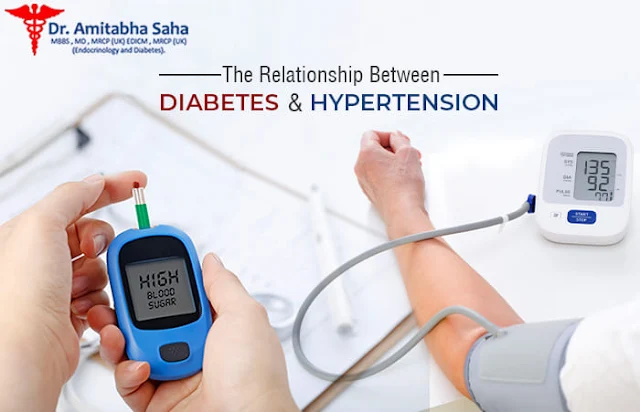Introduction
Managing chronic health conditions like Type 2 Diabetes Mellitus (T2DM) and hypertension can be a complex task, requiring a thorough understanding of the various challenges patients face. In this article, we will delve into a comprehensive review of patient drug-related problems among individuals living with both T2DM and hypertension. Identifying and addressing these problems is crucial for ensuring optimal treatment outcomes and improved quality of life.
The Significance of the Study
It is well-established that patients with T2DM often face the dual burden of hypertension, creating unique medication management challenges. This comprehensive review aims to shed light on the wide array of drug-related problems encountered by these patients, highlighting the need for personalized and tailored therapies.
Methods and Findings
The study, conducted over a span of several months, involved intensive research and analysis of existing literature and clinical studies. It examined multiple dimensions of patient drug-related problems, including medication adherence, polypharmacy, side effects, drug-drug interactions, and the impact of comorbidities on therapeutic choices.
One of the key findings is that medication non-adherence is a pervasive issue among patients with T2DM and hypertension. Various factors, such as forgetfulness, cost, medication complexity, and lack of awareness about the importance of adherence, contribute to this problem. Furthermore, the review also emphasized the role of polypharmacy in exacerbating drug-related problems, as individuals with comorbid conditions often require multiple medications.
Another critical aspect covered in the review relates to potential drug interactions and adverse effects. The study shed light on the complexity of managing drug therapies in patients with T2DM and hypertension, as interactions between antidiabetic agents, antihypertensives, and other commonly prescribed medications can pose significant challenges and necessitate careful monitoring.
Recommendations and Implications
Based on the comprehensive review, several recommendations emerge to tackle these drug-related problems effectively. Healthcare providers should prioritize patient education and engage in shared decision-making, helping patients understand the importance of adherence and the potential consequences of medication non-compliance. Simplifying medication regimens and reducing the burden of polypharmacy through appropriate dose adjustments and therapeutic alternatives are also crucial steps.
Furthermore, interdisciplinary collaborations between healthcare professionals such as physicians, pharmacists, and nurses are essential to ensure holistic patient care. Improving communication channels and creating platforms for regular interaction can enable effective management of drug therapies and early detection of problems.
Read also:
- A Comprehensive Review of Epidemiology, Treatment, Prevalence, and Factors Influencing Drug-Related Problems among Patients with Type 2 Diabetes Mellitus and Hypertension
- A Comprehensive Review of Epidemiology, Treatment, Prevalence, and Factors Influencing Drug-Related Problems among Patients with Type 2 Diabetes Mellitus and Hypertension in Africa and Rwanda
Conclusion
This comprehensive review highlights the complexity of managing drug-related problems in patients with Type 2 Diabetes Mellitus and hypertension. By understanding these challenges, healthcare providers can develop tailored approaches to optimize patient care, enhance medication adherence, minimize adverse events, and ultimately improve health outcomes. This study serves as a valuable resource for healthcare professionals seeking to provide comprehensive and patient-centered care to individuals living with these chronic conditions.
Bibliography
- Al-Qazaz HK, Sulaiman SA, Hassali MA, Shafie AA, Sundram S, Al-Nuri R, Saleem F, Jamaluddin AA, Al-Worafi YM. Diabetes knowledge, medication adherence and glycemic control among patients with type 2 diabetes. Int J Clin Pharm. 2011 Oct;33(5):1028-35. doi: 10.1007/s11096-011-9569-9. Epub 2011 Sep 6. PMID: 21892647.
- Leopoldino AO, Cesarino CB, Polanczyk CA, Gomes MA, Pellanda LC. Knowledge of patients with hypertension and/or diabetes about their diseases. Rev Lat Am Enfermagem. 2009 Jan-Feb;17(1):46-51. doi: 10.1590/s0104-11692009000100007. PMID: 19319864.
- Pouwels KB, Voorham J, Hak E. Assessing the effect of medication use on the association between type 2 diabetes mellitus and hip fracture. Osteoporos Int. 2013 Mar;24(3):1061-7. doi: 10.1007/s00198-012-2059-z. Epub 2012 Jul 10. PMID: 22777006.
- van Eikenhorst L, Taxis K, van Dijk L, de Bont A, Weerd D, Schellevis F, van den Ende C. Do implementation interventions increase adherence to medication prescriptions in older adults with chronic diseases? A systematic review and meta-analysis. BMJ Open. 2018 Oct 29;8(10):e019497. doi: 10.1136/bmjopen-2017-019497. PMID: 30373773; PMCID: PMC6221685.
- Zimmet P, Alberti KG, Shaw J. Global and societal implications of the diabetes epidemic. Nature. 2001 Dec 13;414(6865):782-7. doi: 10.1038/414782a. PMID: 11742409.
- Al-Gawad IA, Allam RM. Nurses' practices in screening for diabetic retinopathy among patients with type 2 diabetes at the primary health care. BMC Nurs. 2020 May 15;19:31. doi: 10.1186/s12912-020-00435-0. PMID: 32435000; PMCID: PMC7220461.
- Khadka J, McAlinden C, Pesudovs K. Quality assessment and comparison of corneal topography images. Cornea. 2014 Feb;33(2):223-30. doi: 10.1097/ICO.0000000000000033. PMID: 24322741.
- Trostle J, Bronfman M, Langer A. How do researchers influence decision-makers? Case studies of Mexican policies. Health Policy Plan. 1999 Mar;14(1):103-14. doi: 10.1093/heapol/14.1.103. PMID: 10344572.
- Gómez-Olivé FX, Thorogood M, Clark B, Kahn K, Tollman S. Self-reported health and health care use in an ageing population in the Agincourt sub-district of rural South Africa. Glob Health Action. 2013 May 20;6:19305. doi: 10.3402/gha.v6i0.19305. PMID: 23685492; PMCID: PMC3660423.
- Saran M, King J, Patel SN, Mukherjee D. Understanding diabetes mellitus and its management strategies: a comprehensive review. J Adv Pharm Technol Res. 2019 Oct-Dec;10(4):157-166. doi: 10.4103/japtr.JAPTR_134_19. PMID: 31749982; PMCID: PMC6868046.
- Sakr MM, Lenarczyk R, Karamyan VT, Abouharb H, Alzghari SK, Hajjari J, Alkan M. A comprehensive review of fructans and diabetes. Nutr Rev. 2020 Aug 1;78(8):655-670. doi: 10.1093/nutrit/nuaa005. PMID: 32399500.


Post a Comment
Full Name :
Adress:
Contact :
Comment: